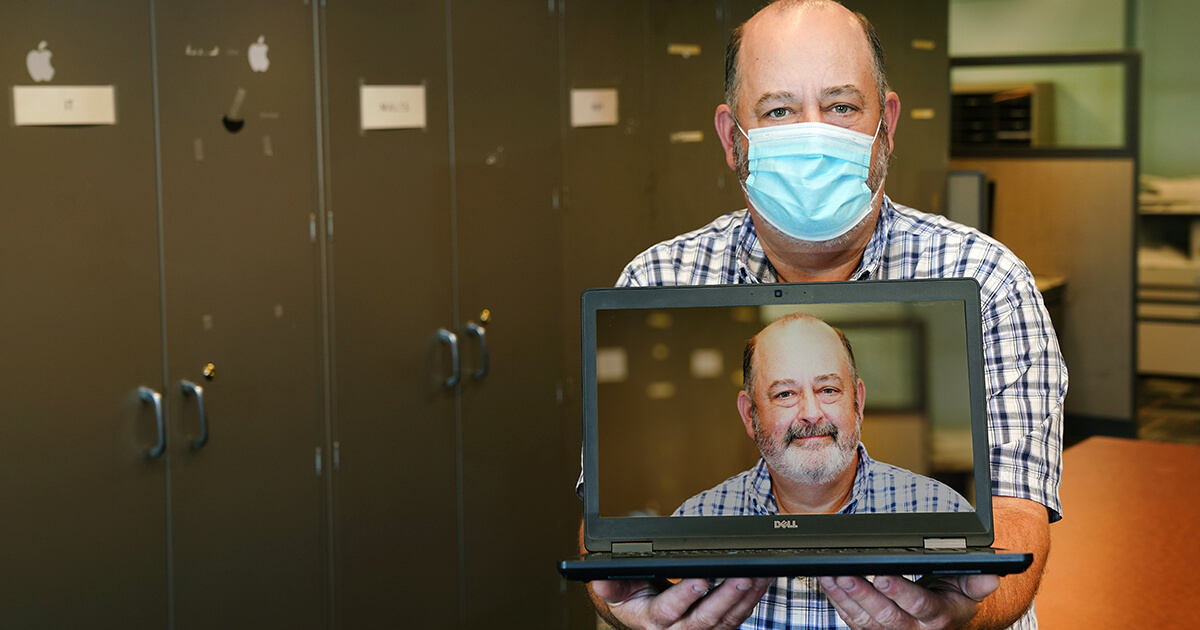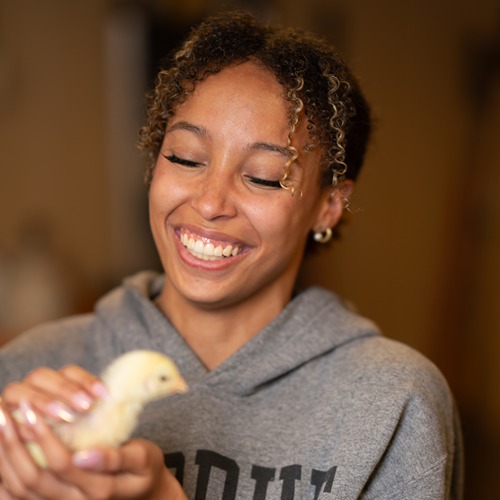Behind the Research: Richard Fox
About the feature
Many people are involved in the remarkable range of programs, services, and facilities that undergird research in the College of Agriculture. Collectively they’re integral to the college fulfilling its research mission. “Behind the Research” explores their individual roles. Each academic year, we profile six people whose work supports the College of Agriculture’s global reputation for developing innovative, multidisciplinary solutions to challenges and then putting those solutions into action.

- A 30-year Purdue employee who provides technical support for ASEC faulty conducting social science research.
- Serves as a technical advisor to AGgrowBOT (formerly AgBOT), advising students in electronics, farming, and IT.
- Both the programmer and an advisor for GearingUp for Safety Production Agricultural Safety Training for Youth, using his IT and farming background to help design 15 lessons before setting up and maintaining the website.
Richard Fox has always enjoyed figuring out how things work. “I like being hands-on,” he says. That interest took him from a farm in the Pulaski County town of Medaryville to IVY Tech for an associate’s degree in electronics technology, and to Indiana State University, where he earned a BS in electronics technology in 1988. Computer use was on the rise, so Fox added a minor in computer technology.
He went to work for a small computer outlet in South Bend before moving to West Lafayette, where he joined the Purdue staff in October 1989. He spent seven years at Herrick Labs supporting mechanical engineering research before moving to ASEC in 1996. “I had a connection with 4-H,” he explains. “And I could see computers coming more into it, and I was interested in programming.”
Today Fox describes his current job responsibilities as “anything that needs done.” He consults with ASEC faculty and staff on technology-related issues, leads computer-related developments and activities in the department, and coordinates efforts with other university computing departments. “It’s a wide variety, basically whatever might pop up,” he says. “That’s developed over the years. There’s a lot of meeting with faculty and staff, making personal connections, and earning their trust.”
“It’s Richard’s ‘sure guy, we can do that’ servant-leadership attitude and his expertise with software and troubleshooting hardware, helping staff and graduate students with software questions, and specifying and recommending equipment, that makes him so valuable to our programs,” says Mark Russell, ASEC department head.
“I love the different technologies,” Fox says, but he also acknowledges the greatest challenge of his position is keeping up with them. He reads constantly, goes to farm shows to see new technology firsthand, and listens to ASEC faculty reports on events they’ve attended and projects they’re involved in. Fox continually works to strengthen his problem-solving techniques.
He cites a case in which two different faculty members come to him after hearing about Swivl, a video conferencing technology for K-12 schools and Schools of Education. “I do a lot of searching on the web,” Fox says. “I pick up the phone and start calling companies to talk to their technicians and salespeople. I ask, ‘How can we make it work?’ ‘What issues could we have?’ ‘Do these instructions make sense?’ Then I can give advice and try to help where I can.”
Fox still farms with his brother, and his interdisciplinary skills across farming, electronics and computers often take him in different directions professionally and personally. He provided a farmer’s perspective and answered students’ questions on a three-person dicamba discussion panel for Issues-360, an issues engagement initiative through the Office of Academic Programs’ College of Agriculture Transformational Experiences (CATE).
Fox has helped develop web-based youth and adult curricula. He instructs junior and senior high school students and teachers on STEM-based technologies like robotics, electricity, and app development. He worked with Ag Extension’s e-commerce site, The Education Store, and on the American Society of Agricultural and Biological Engineers robotics committee.
Agricultural safety is also a special interest, which has led Fox to lend support to Purdue’s AgrAbility project for many years.






